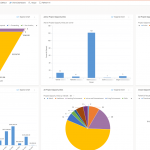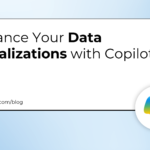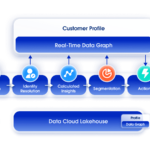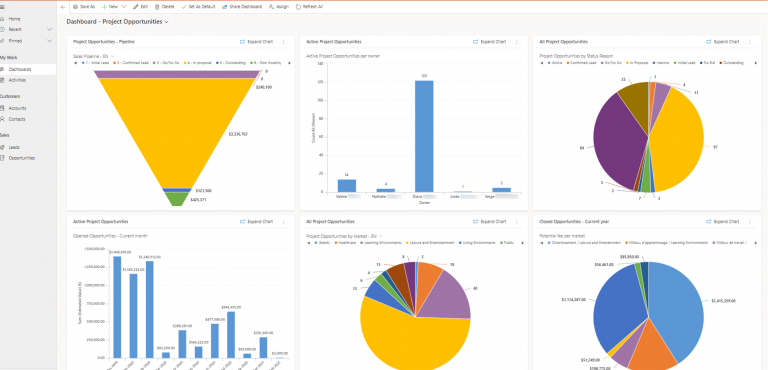Imagine a world where nonprofits can tackle the immense challenges of climate change with unprecedented efficiency and impact. This isn’t a distant dream; it’s the reality that many forward-thinking organizations are already experiencing with help from AI agents.
As the frequency and severity of climate-related disasters continues to increase, we need to make nonprofit resources go further to meet the moment. AI agents can transform the way nonprofits operate, enhancing productivity and allowing nonprofit staff to better support communities bearing the brunt of climate change.
As nonprofits face staffing shortages — with 95% of nonprofits leaders expressing some level of concern about staff burnout — this post will explore how AI agents can help climate nonprofits augment their workforces and make resources go further to drive sustainability at scale.
Overcoming nonprofit challenges
Desk workers report spending 41% of their time on tasks that are “low value, repetitive, or lack meaningful contribution to their core job functions,” according to research from Slack’s Workforce Lab. For nonprofits, this challenge is compounded by limited resources and funding, which, when combined with heavy workloads, contributes to staff burnout and high turnover.
AI can help nonprofit resources go further at a time when many nonprofits — especially in the climate space — are under-funded and under-staffed. Today, a significant gap exists between the amount of funding needed to achieve net zero and the current reality. Furthermore, only 2% of philanthropic funding today goes to climate causes, leaving many climate nonprofits underresourced and stalling global progress.
AI can help nonprofits meet growing climate challenges without placing additional burden on staff. By reducing time spent on repetitive, low value tasks, AI agents can help nonprofits scale their impact even when funding isn’t keeping pace with the demand for their services.
Augmenting nonprofit workforces with Agentforce
AI agents are emerging as game-changers, offering solutions that enhance productivity while streamlining operations. By automating repetitive tasks and providing valuable insights, these tools help nonprofits meet rising stakeholder expectations without overwhelming their staff.
From fundraising to grantmaking to program management to marketing, AI agents are already helping nonprofit employees in the flow of their work. They also can provide organizations an expanded digital workforce to do the work for you, where humans can’t scale. For example, changing appointments for service users, updating shifts for volunteers, sending out donation tax receipts upon request, and so many more opportunities to increase capacity.
Salesforce is bringing these opportunities to nonprofits with Agentforce, an autonomous AI application designed to provide specialized support to employees and customers continuously. Agents operate 24/7, understanding and responding to inquiries without human intervention.
Agents for impact accelerator: empowering nonprofits with AI solutions
During this time of rapid innovation, Salesforce is committed to balancing sustainability with AI development and empowering nonprofits with the latest technology to scale their impact.
The Salesforce Accelerator — Agents for Impact offers nonprofits the tools, training, and support needed to effectively deploy and scale AI solutions. The latest cohort of accelerator nonprofits worked with Salesforce pro bono volunteers to develop AI solutions focused on climate mitigation, climate adaptation and resilience, and climate finance.
Below you will learn about how these nonprofits are leveraging AI and their visions for how AI agents will enhance their work.
Case studies: real-world impact of AI agents for climate action
Optimizing Disaster Response
As climate-related natural disasters increase at an unprecedented rate, Good360 is leveraging Agentforce for disaster response to get donated goods to communities in need faster, while reducing waste. Good360’s resource matching agent helps its disaster response team match communities in need with donated goods. The agent considers the type of donated product, distance and mode of transportation. This helps divert goods to local communities instead of landfills, decreasing Good360’s overall carbon footprint.
Advancing Energy Equity
Community solar projects can advance equity while reducing energy burdens. Groundswell aims to streamline community solar subscriptions for low-to-moderate income households, who often spend over 10% of their income on electricity. They will use Agentforce to enhance and scale this program by managing applicant information and conducting personalized outreach and utility communications. The agent will provide critical support like tracking missing applicant information, drafting personalized outreach emails, and submitting applications on the staff’s behalf, ensuring that no household slips through the cracks. Groundswell estimates this innovation could benefit 30,000 households, reducing energy burden by 50% and saving $678 million over two decades.
Scaling Emissions Reduction
To reduce emissions, organizations of all sizes need resources to understand their carbon footprint and how to adjust course. WattTime’s innovative Automated Emissions Reduction (AER) technology helps reduce carbon emissions by intelligently timing electricity usage during periods of lower carbon intensity on the power grid. To expand the reach of this solution and ensure companies of all sizes and locations can drive impact, WattTime is developing a self-service “WattTime Assistant” with Slack AI that will provide resources and support to small and mid-sized organizations. This democratization of AER and WattTime’s other core solutions has the potential to save up to 9 gigatons of CO2 annually by opening up access to a broader range of institutions worldwide.
Connecting Climate Startups with Resources
Climate Collective Foundation (CCF) has emerged as the largest non-governmental climate tech accelerator in the Global South, having supported 1,100 startups through 63 accelerator programs across South Asia. CCF is building an AI-enabled platform to match angel investments with early-stage climate tech startups. With Agentforce, they will be able to analyze information for investors to recommend the most suitable startups and streamline the investment process by facilitating data sharing and personalized tasks, advancing their goal of mobilizing $1 billion towards climate tech startups.
Facilitating Climate Finance
The Ocean Risk and Resilience Action Alliance (ORRAA) is the only multi-sector collaboration connecting the international finance and insurance sectors, governments, non-profits, and stakeholders from coastal communities to pioneer finance products that incentivise investment into coastal and ocean Nature-based Solutions. To help achieve this, it is developing the Octopus Desk, a platform to connect project developers with investors, donors, and advisors. Through the accelerator, ORRAA has explored how agentic AI could facilitate the matching process, including, for example, coaching project developers through the refinement of pitch materials.
Get started with Agentforce
These are just a few ways Agentforce is allowing nonprofits to scale their impact to better serve communities, while mitigating staff burnout.
Ready to transform your nonprofit’s operations with AI? Here’s how to begin:
By embracing AI agents today, you can make your organization’s impact go further — and give nonprofit staff time back to focus on addressing urgent climate challenges.











